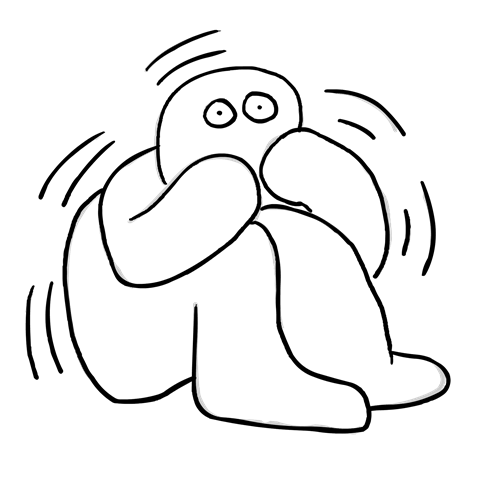This is one of life's challenges:
- When we realize the magnitude of danger facing humanity and Earth because of climate change, it seems sensible to hide under the covers rather than get out of bed.
- When we notice our values and freedoms being eroded everyday by people who purport to protect them, it is easiest to joke about seeking asylum across our northern border.
- When we face news stories about the in human treatment of children, women, and men who are actually seeking asylum from the violence and atrocities in their home countries, it is tempting to close our eyes.
I know.
But please don’t. Don’t look away, that is.
Act and create hope
Averting our eyes, turning our heads, and pretending otherwise eats away at our souls and cheapens our own humanity.
We must look. And we must act. It is by acting that we create a new world, a safer path, and the change that we need for the world.
As a Catholic sister who has worked for justice for many decades now, I know well the temptation to despair. Praying my way through the news, as I do each day, is often painful and overwhelming. I often wonder: How can God allow this? How can humans be so cruel, unjust, or blind? Why can’t “they” see that this is not God’s desire for creation?
I find great encouragement in the words of 16-year-old climate activist Greta Thunberg. At a TED conference earlier this year she said “Yes, we do need hope. Of course we do. But the one thing we need more than hope is action. Once we start to act, hope is everywhere. Instead of looking for hope, Look for action. Then, one day, hope will come.”
Act and create hope. It’s a great idea. So, here are some ways to avoid the paralysis trap, no matter the issue you are most concerned about.
What are you doing?
When you find yourself worried or complaining a lot about something that is bothering you, ask yourself this question: What am I doing to change the very thing I am worried or complaining about? If you have an answer, then you are probably already heading in the right direction.
If you’re not?
Then why not? If it is because you are afraid or paralyzed, it’s important to do something. If you don’t know what to do or where to begin, here are some places to start.
Pray. Bring your anguish, fear, and paralysis to God. Cry out in lament. It feels good, and releases some of those toxic emotions that can keep you from action. God will help, sure. But know that, as St. Teresa of Avila knew, “Christ has no body now but yours. No hands, no feet on earth but yours. Yours are the eyes through which he looks compassion on this world. ... Yours are the hands through which he blesses all the world.” God is counting on your help.
Call. It is always a good idea to express your desire for public policy change to your elected officials. You can easily find their contact information on the website. If you don’t know who they are, start at www.govtrack.us. For state and local officials start with your state or city’s website.
Learn. The more you know and understand about an issue that concerns you, the more likely it is you will find constructive ways to act. Get connected to local or national organizations that care about the same issues you do and use their resources as a starting point for understanding the complexities of the issue.
Volunteer or give. When you’ve learned enough about a concerning issue that you feel ready to give more of yourself or your resources, find a group to which you can donate or give your time.
Why does it matter?
Even when you do act, it is tempting to wonder if it matters. I know that it does matter. For a good example, look back at this info graphic from JUST Words about how a combination of prayer, study, relationship building, storytelling, and personal transformation created the policy change that abolished the death penalty in Illinois.
Then consider these words of theologian Cynthia Moe-Lobeda:
“The fact that individual actions are relatively powerless in the face of structural sin does not mean that personal efforts to counter it are immaterial, ineffectual, or unnecessary. To the contrary, the individual’s response is essential and effectual. I cannot overstate the importance of recognizing this paradox: Structural sin, while it cannot be dismantled by individual actions, cannot be dismantled without them.”
Cynthia D. Moe-Lobeda. Resisting Structural Evil: Love as Ecological-Economic Vocation. Minneapolis: Fortress Press. 2013, p. 62.
Keep the faith
If you’ve made it this far, you must really care! That is fantastic. If you’d like some support for your efforts to be a change-maker, consider how you might join us in our efforts to do the same. There are several options open to you that you can check out here.
We are in this together
Whether you ally yourselves with us and our work or not, know that when you choose to take an action—any action that promotes a more just and equitable world—you are, in fact, making a difference.
Doesn't that feel better than hiding under the covers?

Sister Marcelline Koch is the promoter of justice, peace and care of creation for the Dominican Sisters of Springfield and the co-promoter of justice for the North American Dominicans. She is a native of Mt. Sterling, Illinois, and has been a Springfield Dominican Sister since 1961.



Excellent read! We can make a difference if we work together for a kinder world.